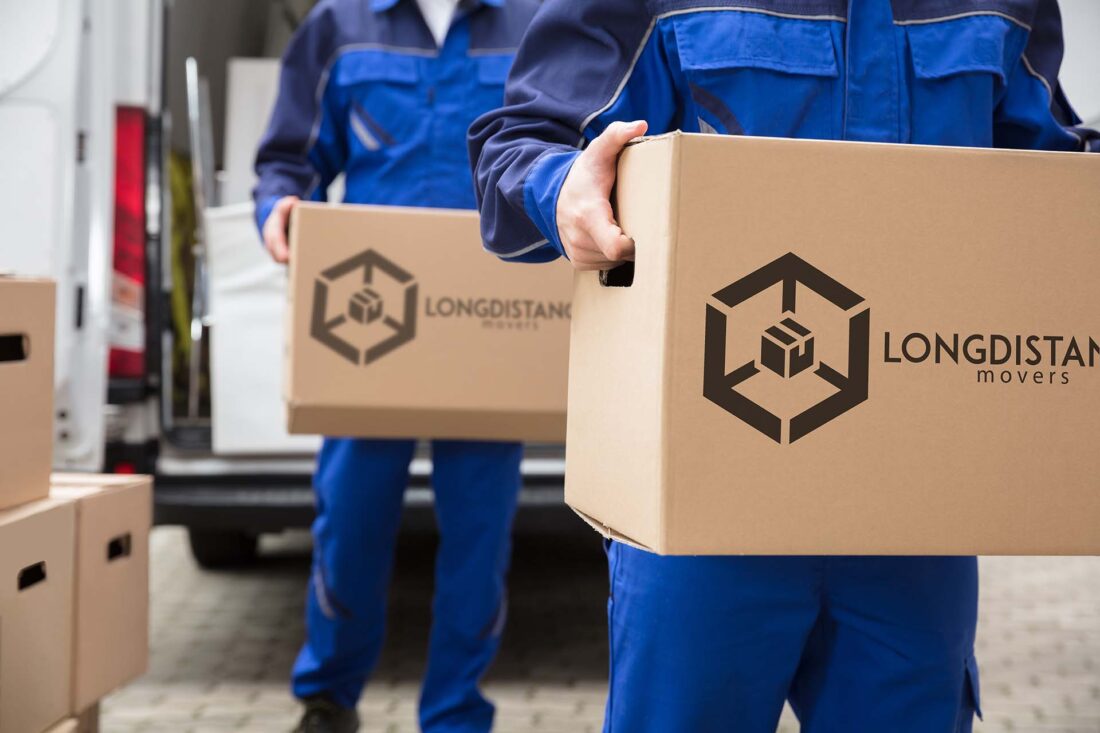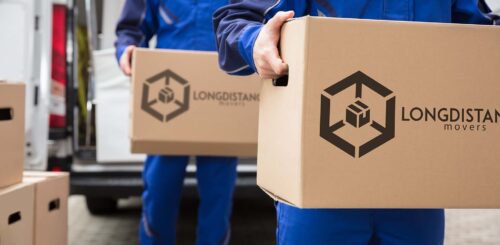Relocating can be a daunting task, but fear not! In this ultimate guide, we’ll show you how to prepare for a move like a pro. From boxing-up tips to organizing your belongings, we’ve got you covered. Say goodbye to stress and hello to a smooth relocation experience with our expert advice on how to get ready to move. Let’s get started!


When preparing to move, start assessing your relocation needs, setting the date, and evaluating your budget. Plan a timeline and research and review relocation companies before picking the right one. Downsize and sell unused items in a garage sale before you gather needed supplies and start packing. Notify important people and parties about your relocation before the relocation day.
How to Prepare for a Move – Start by Assess Your Moving Needs in Advance
When learning how to prepare for moving, create a home inventory of the items you’ll be relocating, determine the size of the move, and decide if you need professional help or can handle it yourself. Understanding your requirements early on will help you plan and execute a smooth and successful relocation.
Evaluate Your Budget and Resources
Calculate potential expenses, such as hiring long-distance movers, transportation costs, and the amount of packing materials to box up your possessions. Consider your relocation budget and allocate funds accordingly. Assess the time and manpower available for the whole process, whether you plan to enlist help from friends and family or hire professionals.


Create a Cross-Country Moving Timeline
Set the ideal relocation date, considering factors like work schedules, lease agreements, or real estate transactions. Create a detailed schedule outlining tasks to be accomplished each week leading up to the relocation.
This proactive approach ensures you stay organized and on track, reducing last-minute relocation stress and allowing for a seamless transition to your new home. By breaking down tasks, setting milestones, and adhering to deadlines, you’ll make the relocation across the country more manageable and less overwhelming. Here’s a suggested timeline.
8-12 Weeks Before the Relocation
Research companies and get quotes,
Decide on a date and book cross-country movers,
Start decluttering and organizing belongings.
6-8 Weeks Before the Relocation
Begin packing non-essential items,
Label boxes for easy unpacking,
Inform your employers, schools, and doctors of your upcoming relocation.
4-6 Weeks Before the Relocation
Arrange transportation for pets and plants,
Gather important documents and keep them in a secure place,
Inform the postal service of your change of address.
2-4 Weeks Before the Relocation
Pack the majority of your remaining stuff, leaving only essentials for daily use,
Notify your current and future utility providers of the relocation,
Confirm details with your relocation company,
Schedule any necessary repairs or cleaning for your current home.
1-2 Weeks Before the Relocation
Finish boxing up and labeling boxes clearly,
Defrost and clean your refrigerator and freezer,
Dispose of hazardous materials properly.
The Moving Day
Double-check that everything is packed and ready for transportation,
Take a final walkthrough of the premises and meter readings for utilities,
Lock up your old home and hand over the keys.
After the Relocation
Unpack and settle into your future home gradually,
Update your address with important institutions and government agencies,
Register your vehicle and obtain a new driver’s license.
Finding the Right Long-Distance Moving Company
You should know that choosing the right company is crucial for a smooth and stress-free relocation. Start by researching reputable companies with experience in handling interstate moves. Obtain detailed quotes from at least three companies, ensuring transparency in pricing and services offered.
Verify their credentials and insurance status through the FMCSA website or check The Better Business Bureau (BBB) database for their reliability and performance. Also, consider the availability of the companies on your preferred relocation date and the range of long-distance moving services they provide, such as packing services, auto transport, insurance coverage, and storage options.
Go Through Reviews and Compare Cross-Country Moving Companies
Reading customer reviews and testimonials to gain insights into the experiences of previous clients is very important before settling down with the right company. Look for customer feedback on reputable review platforms and moving websites.
Pay attention to overall satisfaction, reliability, and any reported issues. Compare services, prices, insurance coverage, and additional offerings from different companies. Consider in-home or virtual surveys for more accurate assessments. Assess the companies’ reputations for reliability and professionalism.


Declutter and Organize Before You Start Boxing Up
By decluttering and organizing, you’ll make your relocation more efficient and enjoy a fresh start in your future space. Start by assessing your belongings and making decisions on what to keep, donate, sell, or get rid of. Sort items into categories to facilitate packing and unpacking later. Sell or donate unwanted items to lighten your load and potentially save extra cash for your relocation. Discard damaged or non-essential items responsibly for a smoother transition.
Follow the video below to learn more about the no-mess downsizing method.
Consider Hosting a Garage Sale
Hosting a successful garage sale can be a great way to declutter your home before relocation and add some funds to your budget. While sorting through your belongings, don’t forget to set aside things that are in good condition but you no longer reach out for. Clean and organize these items for display.
Choose a date and advertise your garage sale through local community boards, social media, or flyers. On the day of the sale, set up tables and arrange your items attractively. Price items clearly, and be prepared to negotiate with potential buyers. Create a welcoming atmosphere, offer refreshments, and be friendly to encourage more sales. After the sale, consider donating or recycling any unsold items to minimize waste.


Utilize Different Techniques and Pack Like a Pro
To pack efficiently like a pro, start by gathering different packing materials, such as sturdy boxes in different sizes, duct tape, bubble wrap, clear paper, and markers. Use proper boxing-up techniques for delicate and fragile items by wrapping them carefully in bubble wrap or packing paper and cushioning them inside boxes with soft materials like clothing or towels. Don’t forget to label each box with its contents and the room it belongs to for easy unpacking. Additionally, create an inventory of all packed items to keep track of everything during the relocation.
Notifying Important People and Parties About Your Move
Start by updating your address with the post office to redirect your mail to a future location. Inform relevant institutions, such as banks, credit card companies, insurance providers, and utility companies, about the upcoming change. Don’t forget to update your employer, schools, doctors, and any other essential service providers with your changed address. Inform friends, family, and neighbors so they have your contact information as well.
Notify Utilities, Internet, and Other Service Providers
Reach out to your electricity, gas, water, and sewer companies to schedule disconnection at your current address and a setup at your future home. Inform your internet, cable, and phone providers about your relocation to arrange the transfer or cancellation of services.
Don’t forget to update your address with waste management and recycling services as well. Additionally, notify any subscription services you may have to ensure a seamless forwarding of your magazines, newspapers, and commercial materials to your location.
Inform Friends and Family of Your New Address
Your friends and family will undoubtedly appreciate the thoughtfulness and effort in keeping them informed during this significant life event. Reach out to your close circle through personal messages, emails, or social media posts to share the exciting news.
Provide them with your new address and any necessary contact information, such as phone numbers or email addresses. Consider sending out change-of-address cards or announcements to ensure that everyone in your network is aware of your relocation.
Take Care of Legal and Administrative Matters
Taking care of legal and administrative matters is crucial when relocating to a new state or country. Start by transferring your driver’s license and vehicle registration to comply with local regulations. If you are relocating with kids, register them in new schools, ensuring a smooth transition and continuity of education.
Familiarize yourself with the legal requirements of that location, such as residency permits, tax obligations, and any other relevant documentation needed for work or residency. By proactively addressing these matters, you’ll avoid potential legal issues and ensure seamless integration into your community.


Moving Day Preparation Is Also Important
Having a thorough moving preparation on the big day is vital for the success of your relocation. To ease the transition to your new home, pack a relocation essentials box with items you’ll need immediately, such as toiletries, a change of clothes, important documents, and some basic kitchenware.
Double-check arrangements with your company to ensure a smooth pickup and delivery process. Confirm the relocation schedule and discuss any special instructions or requirements. Additionally, coordinate with friends or family who have offered to help with the relocation. Assign specific tasks and create a plan to streamline the process. Their assistance can make the big day less stressful and more efficient.
Moving Services
Treat yourself with a white glove long distance moving service that’s based on the inventory list and not weight. This means a price guarantee, transparent move costs and premium moving service.
Learn morePacking Service
Sit back and relax, we’ve got packing services covered. We use moving blankets, shrink wrap, bubble wrap and even custom wooden crating. Your stuff will be protected and carefully handled during the move.
Learn moreStorage Services
Our spacious climate-controlled units will protect your things until the drop-off. No need to worry about them because all items are labeled and secure, and each customer gets a dedicated unit mixup isn’t possible.
Learn moreUnpack and Settle Into Your New Home
After the relocation, it’s time to unpack and settle into your future home. Start by unpacking efficiently and strategically, focusing on essential items first. Organize your belongings by room, making it easier to find what you need. Make sure that essential utilities and services like electricity, water, internet, and cable are set up properly to ensure a comfortable living environment.
Take the time to explore your neighborhood, finding nearby amenities, parks, and local attractions. Engage with your community, attend events, and meet your neighbors to begin building connections. Embrace this exciting chapter, and with patience and curiosity, you’ll soon feel right at home in your new surroundings.


Follow Our Guide, and You’ll Relocate Across the US in No Time
You’re now equipped with the ultimate guide to relocating across the US effortlessly. From meticulous cross-country moving services and packing to addressing administrative matters, Long Distance USA Movers will cover every step for a successful and easy relocation. If you have any questions for our movers or need further support, don’t hesitate to contact us. Your journey to this exciting chapter is just around the corner, and our expert team is more than ready to assist you!
FAQ
How Far in Advance Should I Start Preparing for My Move?
It’s best to start preparing for your relocation at least 8-12 weeks before your set date to avoid relocation stress.
What Should Be Included in My Moving Timeline?
Your timeline should include tasks like decluttering, packing, hiring movers, updating your address, and more.
How Do I Find a Reliable Moving Company?
Research and read reviews, get multiple quotes, and ensure they are licensed and insured by a reliable company.
Should I Hire Professional Packers, or Can I Do It Myself?
It depends on your preference and budget. Professional packers can save time and ensure proper packing.
How Do I Declutter and Decide What to Keep or Discard?
Sort your belongings and decide what to keep, donate, sell, or discard. Keep only items that are essential or have sentimental value.
What Are Some Essential Packing Supplies I'll Need?
You’ll need boxes, duct tape, bubble wrap, clean paper, markers, and labels for a successful boxing-up process.
How Can I Protect Fragile Items During the Move?
Use bubble wrap, foam peanuts, and proper boxing-up techniques to protect fragile items.
What Should I Do With Items I Want to Sell Before Moving?
Consider organizing a garage sale or selling items online to declutter and earn extra money.
What Legal Documents and Paperwork Do I Need to Take Care of When Moving?
Keep important documents, such as identification, birth certificates, and medical records, in a safe and organized relocation binder.
How Do I Ensure a Smooth Moving Day and Avoid Potential Problems?
Confirm details with your relocation company, pack an essentials box, and stay organized on your big day.
What Should I Pack in an Essentials Box for Immediate Use at My New Home?
The container with essentials should include items like toiletries, clothes, medications, snacks, and important documents.
How Do I Handle the Emotional Challenges of Moving to a New Place?
Stay positive, maintain a support system, and embrace the opportunities that come with relocation.
How Can I Help My Children or Pets Adjust to the New Environment?
Maintain routines when relocating with pets or children, involve them in the whole process, and show them the space gradually.
What Steps Should I Take To Familiarize Myself With My New Neighborhood?
Explore the area, visit local shops and parks, and join community events to get familiar with the neighborhood.








